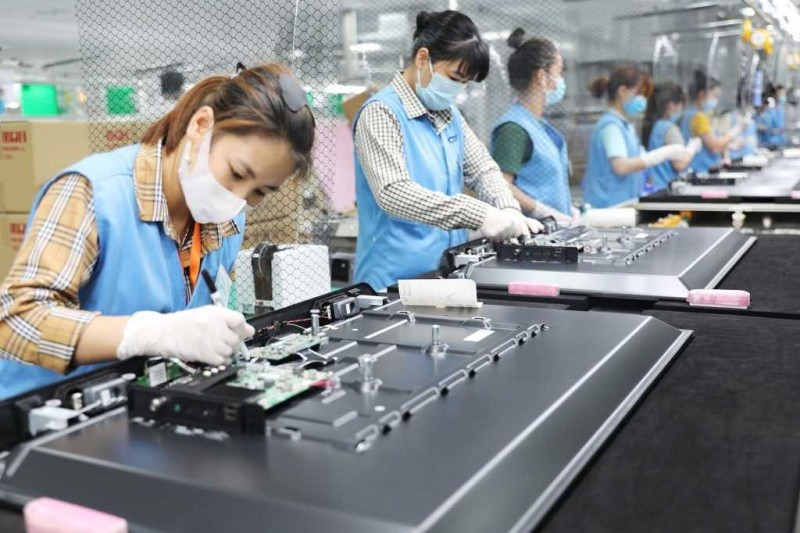This provides a good foundation for encouraging a change in the quality of FDI attraction, with a new wave expected to come in 2024.
Compared to a rising star in attracting FDI in advanced technology, Vietnam holds great appeal to multinational companies in their search for investment opportunities in Asia.
Vietnam’s appeal comes not only from its political stability, cheap labour, the ability to maintain macroeconomic stability amid global uncertainty and a bright economic growth outlook with a population of 100 million people, but is also broadened by positive outcomes of Vietnam’s diplomatic relations with key partners such as the United States, China and Japan in 2023.
Furthermore, in their recent analyses, both domestic and foreign economists have underlined Vietnam’s position for its close proximity to Asia’s high-tech supply chains as well as for being a country with a low risk of being imposed tariffs when exporting to the US.
Amid big changes in the international investment environment, the Vietnamese National Assembly passed a resolution on the global minimum corporate tax, effective from January 1, 2024. Vietnam has also been working hard to prepare the infrastructure, human resources, and a corporate ecosystem to receive a wave of investment in the semiconductor industry.
Specifically, the government has assigned the Ministry of Planning and Investment and the Ministry of Information and Communications to work with the relevant ministries and agencies to formulate an action plan and a strategy to develop the semiconductor industry in Vietnam, with a special focus on human resources. Vietnam also established the National Innovation Centre and three high-tech parks in Ho Chi Minh City, Hanoi, and Da Nang with strong incentives to attract investors.
However, there are concerns that the pace of business reform has not lived up to expectations; highly qualified personnel are insufficient and investment promotion remains limited, which are obstacles affecting the decisions of investors to pour capital into Vietnam.
In order to attract high-quality FDI that can come in a new wave, in addition to superior advantages, Vietnam needs to be more proactive to meet the requirements of foreign investors in new high-tech industries because a feature of this investment wave is that the decision time is short while competition between regional countries is intense between. If Vietnam is inadequately prepared, it will miss the opportunity.
















